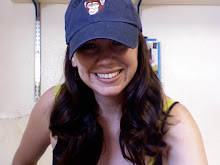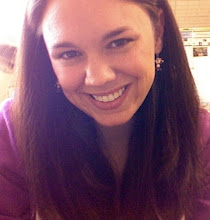
Approaches to teaching and learning have changed in light of new views on how students learn. Where in the past we thought learning was linear, we now see that learning doesn't necessarily proceed by the accumulation of a common set of basic skills, but can follow multiple strategies and pathways. The view of constructivism believes that all individuals are thought to learn by constructing information about the world and by using active and dynamic mental processes. This newer view on how we learn has implications for how we must assess. Basically, as the author states: "If students construct information as they learn, and apply the information in classroom settings, assessment should provide the students with opportunities to construct responses and to apply their learning to problems that mirror their classroom activities in authentic ways."
The article discusses briefly several types of authentic assessments. It also mentions that many teachers DO use these assessments already, however they do it in such an informal way that it does not provide enough information about student learning, or the goals of instruction.
Here are the list of the authentic assessments the book provides, and a note on whether or not I've used them..
Oral interviews--I've used these, but informally
Story or Text Retelling--Yes I've used this, and developed a rubric (or used rubrics created professionally)
Writing Samples--Yes often, Use 6-traits rubric, and rubrics that align to state writing standards
Projects/Exhibitions--Yes, often develop my own scoring rubrics for these
Experimental/demonstrations--Haven't used
Constructed Response Items--Yes, I do use these for tests for my high schoolers on material that I teach in class
Teacher Observations--YEs, but informally (until I start my research!!)
Portfolios--No, but REALLY want to!! I had a portfolio in high school, and remember thinking it was a fair assessment of my varied skills and talents
If I had to assess myself on my awareness of authentic assessments (which I will do in more detail on the self assessment) I would say that I'm fairly aware of them, and I do use them, however I need to implement a more formal/systematic approach so that I can get more meaningful information from them, as well as use them more in instructional goal setting.
I like how the chapter gives step by step directions for designing authentic assessments--I'm kind of excited to try and work with some teachers (if they can accept me as a teacher, and not a district office spy..lol) and design some authentic assessments particularly for our students' writing. We used to have a writing portfolio as part of our "old" standards and I would love to see that put back in place with some careful designing by LA teachers.









2 comments:
I appreciated learning about the authentic assessments you have used and would like to use.
Marilee
I enjoyed reading about the different types of authentic assessment. Do you happen to have a particular assessment that you find incredibly effective? Thus far, I have found that observation and student self-evaluation has worked to help me see how students are doing. I have not used quite a few of the ones you posted, but would definitely like to.
Post a Comment